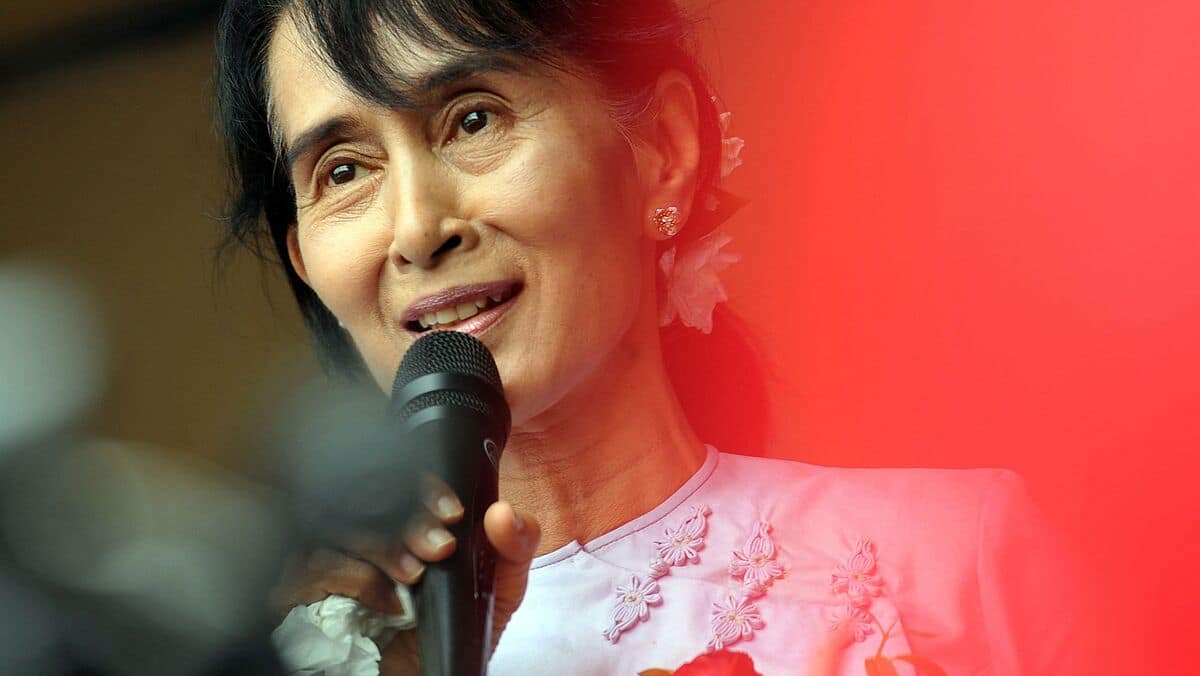On Monday, Aung San Suu Kyi was sentenced to 4 years in prison for inciting public disorder and violating health rules related to COVID-19, the first ruling against a former democracy icon pursued by the junta and raising serious concerns in the international community.
The 76-year-old Nobel Peace Prize winner has been placed under house arrest since the February 1 coup that brought an abrupt end to Burma’s democratic transition process that has been underway since 2010. She has been sentenced since June and has been charged with multiple crimes: sedition, corruption and electoral fraud. …and the dangers of ending his days in detention.
• Read also: Myanmar: Aung San Suu Kyi’s trial, first verdict expected on Tuesday
• Read also: Myanmar: Aung San Suu Kyi is absent from her trial due to health reasons
• Read also: Myanmar: Nearly 90 killed in crackdown on pro-democracy protests
Many observers have deplored a political trial aimed at neutralizing the winner of the 2015 and 2020 elections.
The UN High Commissioner for Human Rights, Michelle Bachelet, denounced the conviction “in a rigged trial with secret proceedings before a military-controlled court (which is) nothing but politically motivated”. According to her, this sentence “also closes the door to political dialogue.”
The British government also reacted very swiftly, describing the condemnation as a “horrific attempt (…) to stifle dissent and suppress freedom and democracy”. Foreign Secretary Liz Truss said the UK was calling on the regime to “release political prisoners, engage in dialogue and allow democracy to return”.
The former head of the civilian government, who was ousted by the military in February, “was sentenced to two years in prison under Article 505(b) and two years in prison due to natural disasters,” junta spokesman Zaw Min Tun told AFP on Monday. Over the phone.
He said former President Win Myint had been sentenced to the same sentence, adding that they would not be taken to prison for the time being.
“They will have to face other accusations from the places where they are currently residing” in the capital, Naypyidaw, he added, without elaborating.
The incitement condemnation relates to the statements made by Aung San Suu Kyi’s party, the National League for Democracy, shortly after the coup, condemning the generals’ seizure of power.
The Covid charge is linked to last year’s election, which the National League for Democracy easily won, but the details were not known as the military junta imposed silence on the legal proceedings.
She faces decades in prison if convicted on all charges.
The next ruling is expected on December 14, for another breach of the Natural Disasters Act.
Journalists are banned from attending the special court proceedings in the military-built capital, and Suu Kyi’s lawyers were also recently banned from speaking to the media.
According to a local human rights organization, more than 1,300 people have been killed and more than 10,000 arrested as part of a crackdown on dissent since the coup.
Amnesty International said in a statement that the Burmese military council is seeking to “stifle freedoms” by imprisoning the former head of the civilian government, Aung San Suu Kyi.
“The harsh sentences imposed on Aung San Suu Kyi on the basis of these false accusations are the latest example of the military’s determination to stamp out all forms of dissent and stifle liberties in Burma,” said Ming Yu Hah, Deputy Regional Activist Director at Amnesty International.
Richard Horsey, an expert on Burma at the International Crisis Group, told AFP the sentences were “revenge and a demonstration of power by the military”.
However, it would be surprising if she was sent to prison. It is more likely that she will serve this sentence and the following in her own home or in a +guesthouse + provided by the system.”
The generals justified their coup by making sure they detected more than 11 million irregularities during the November 2020 elections, which the NLD overwhelmingly won.
International observers at the time described the vote as “generally free and fair”.
International pressure on the junta to quickly restore democracy has not derailed the generals, and bloody clashes with anti-coup protesters continue across the country.

“Extreme twitteraholic. Passionate travel nerd. Hardcore zombie trailblazer. Web fanatic. Evil bacon geek.”


